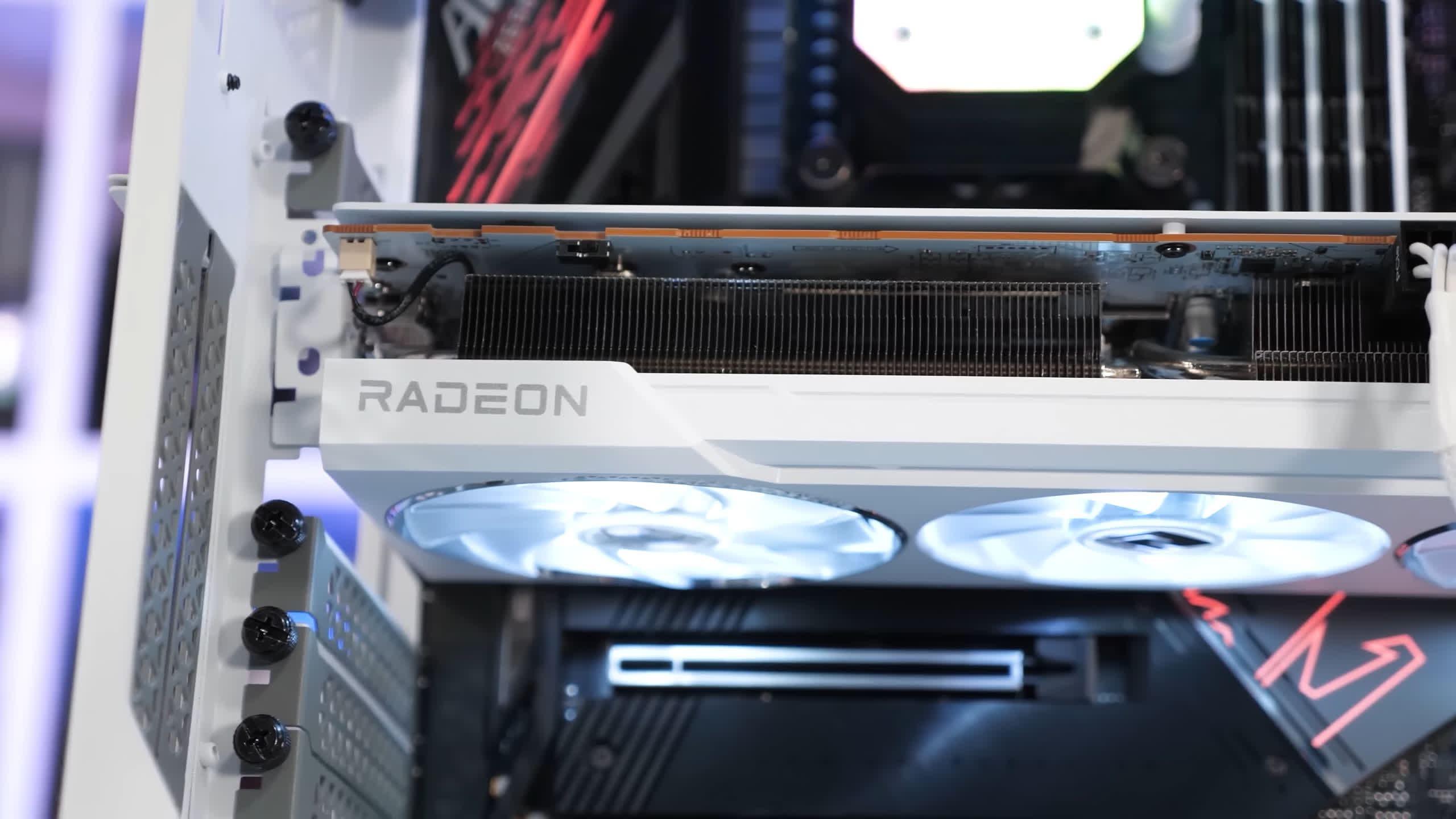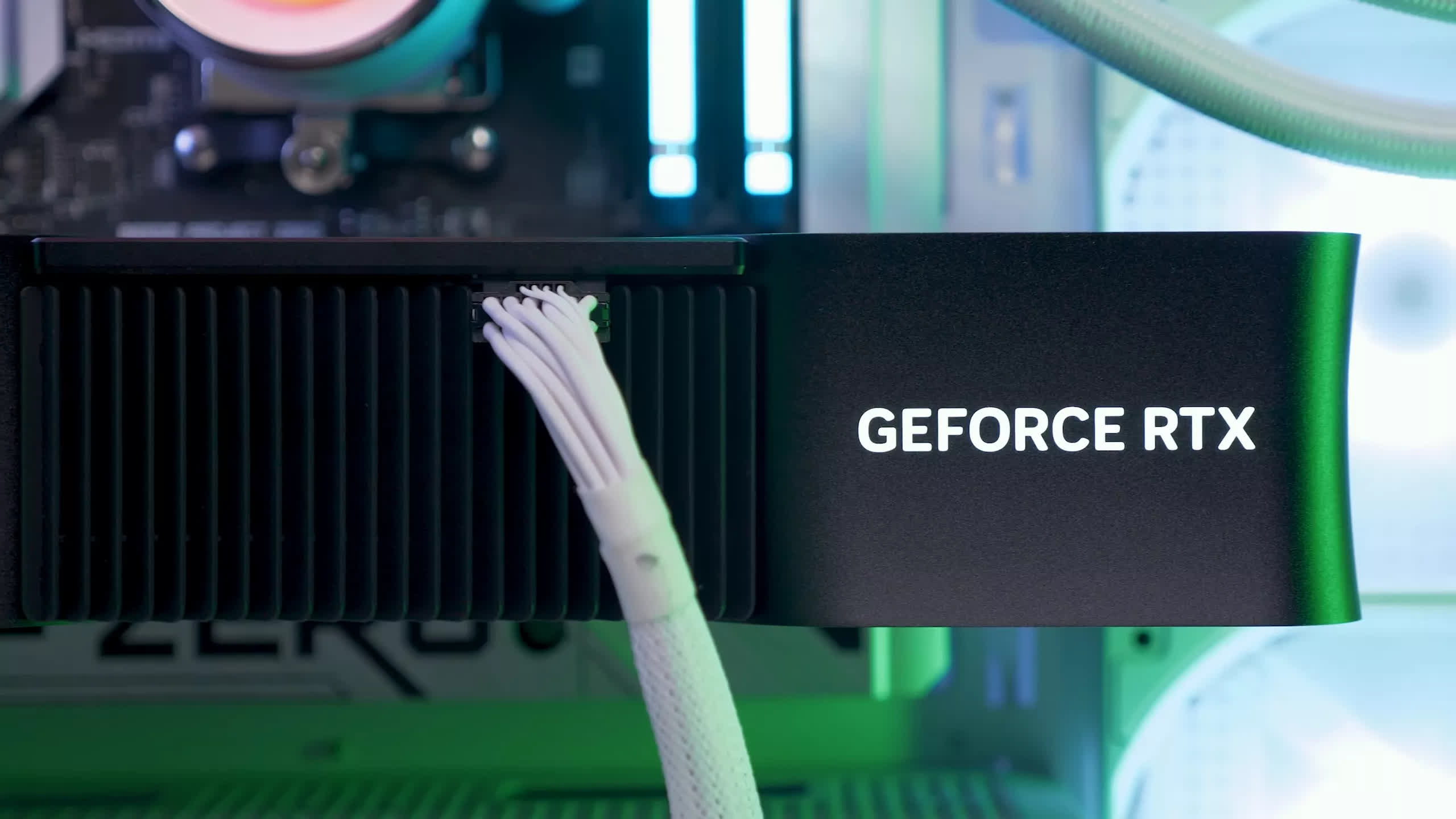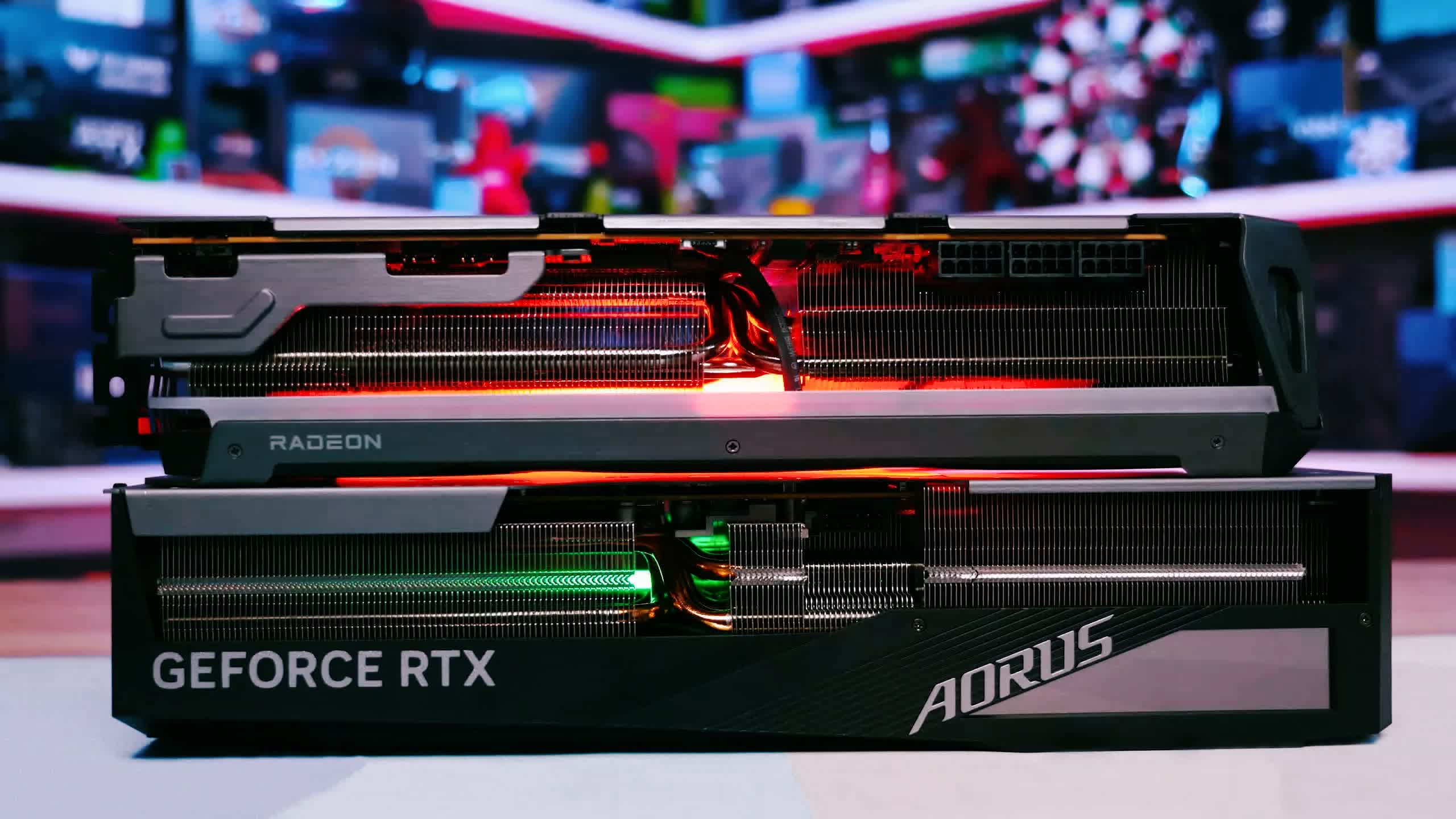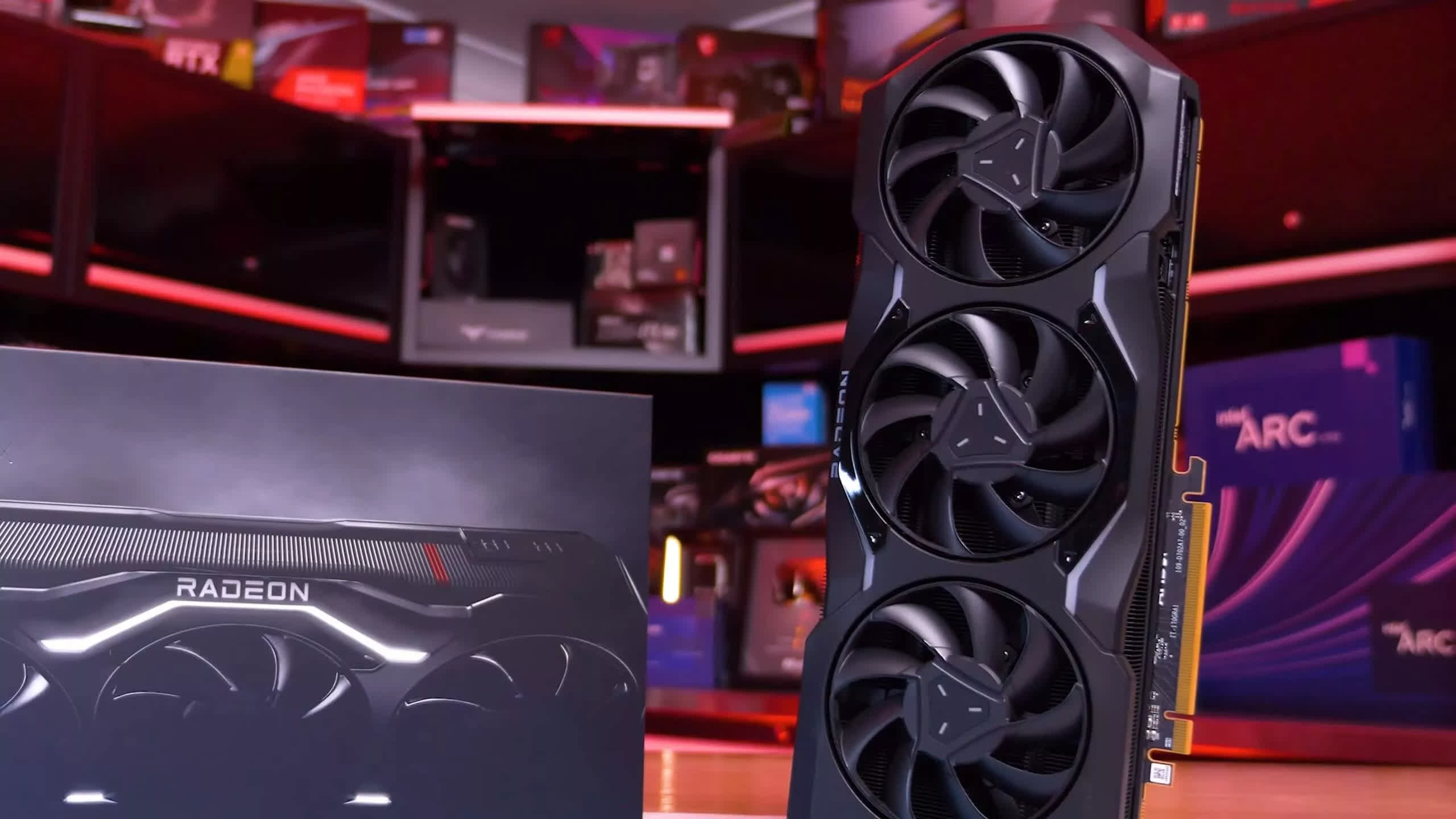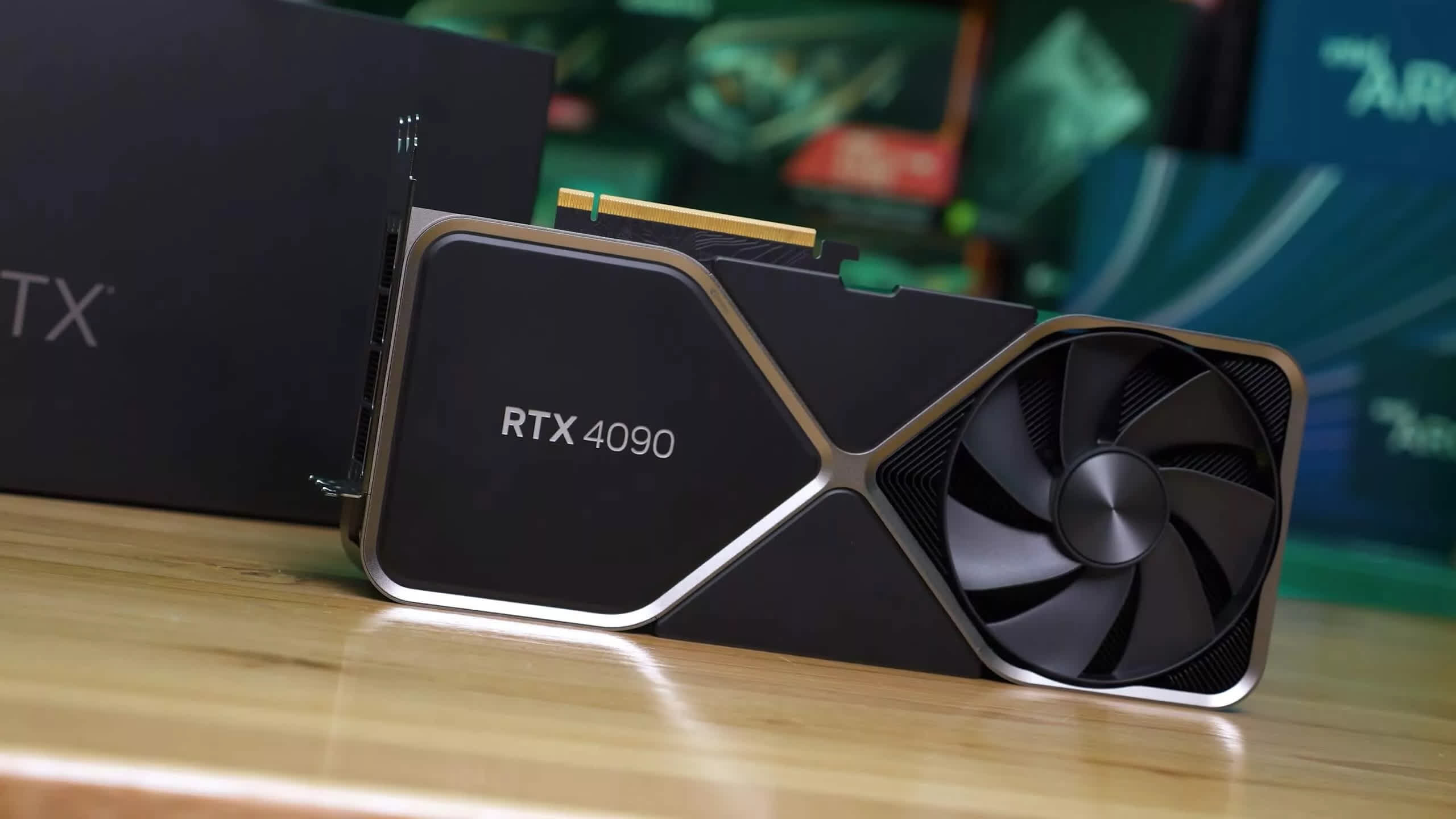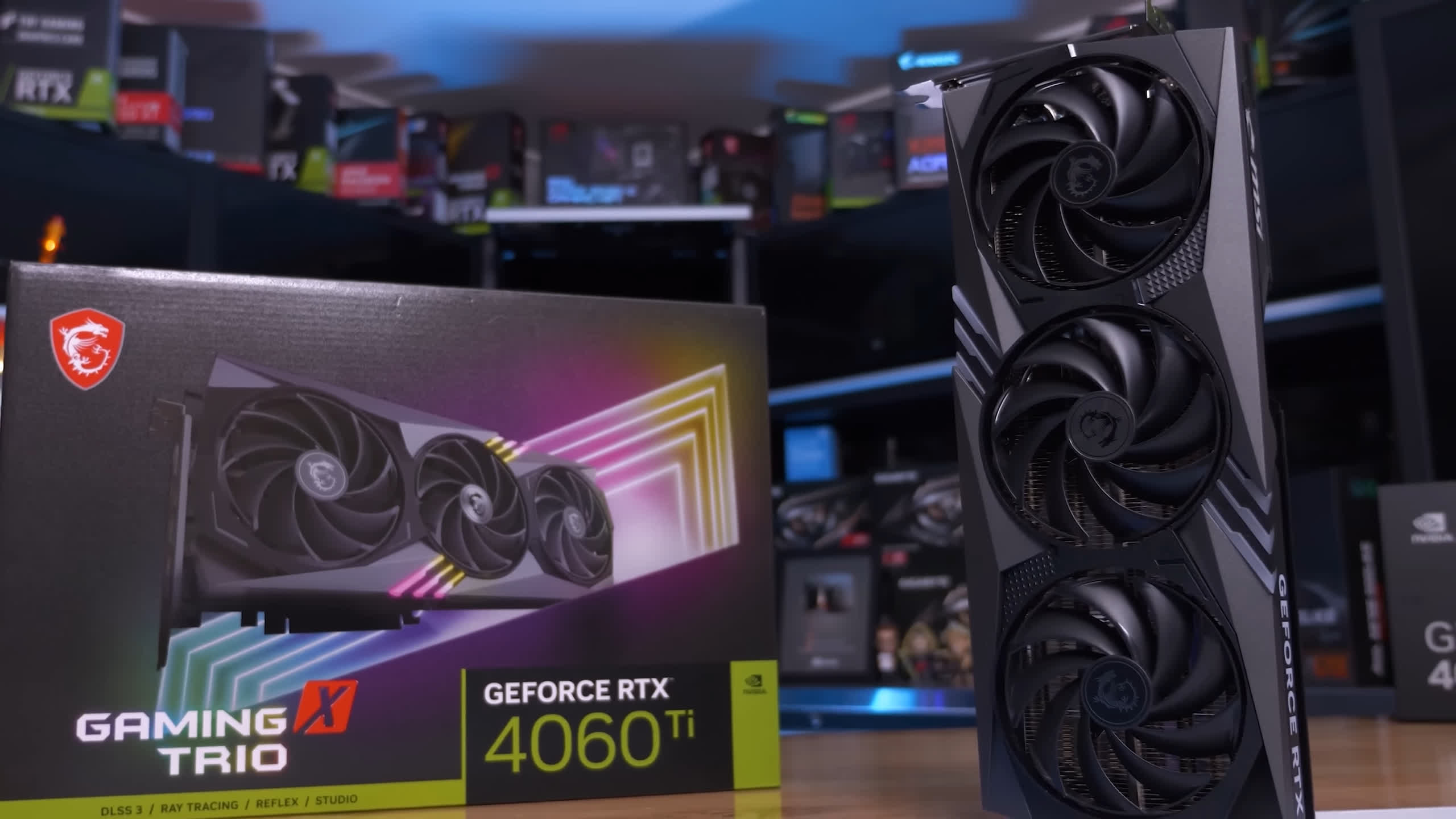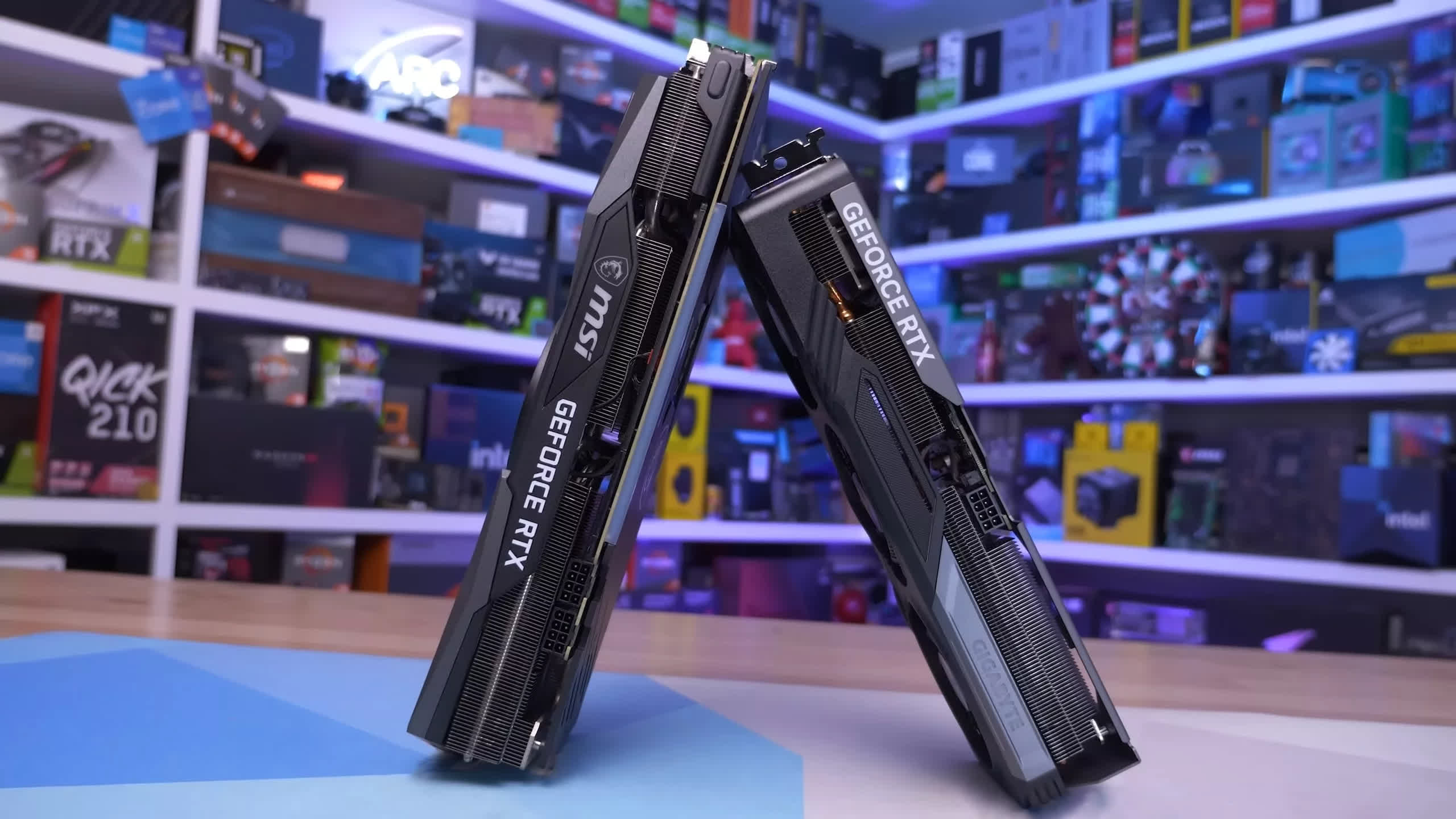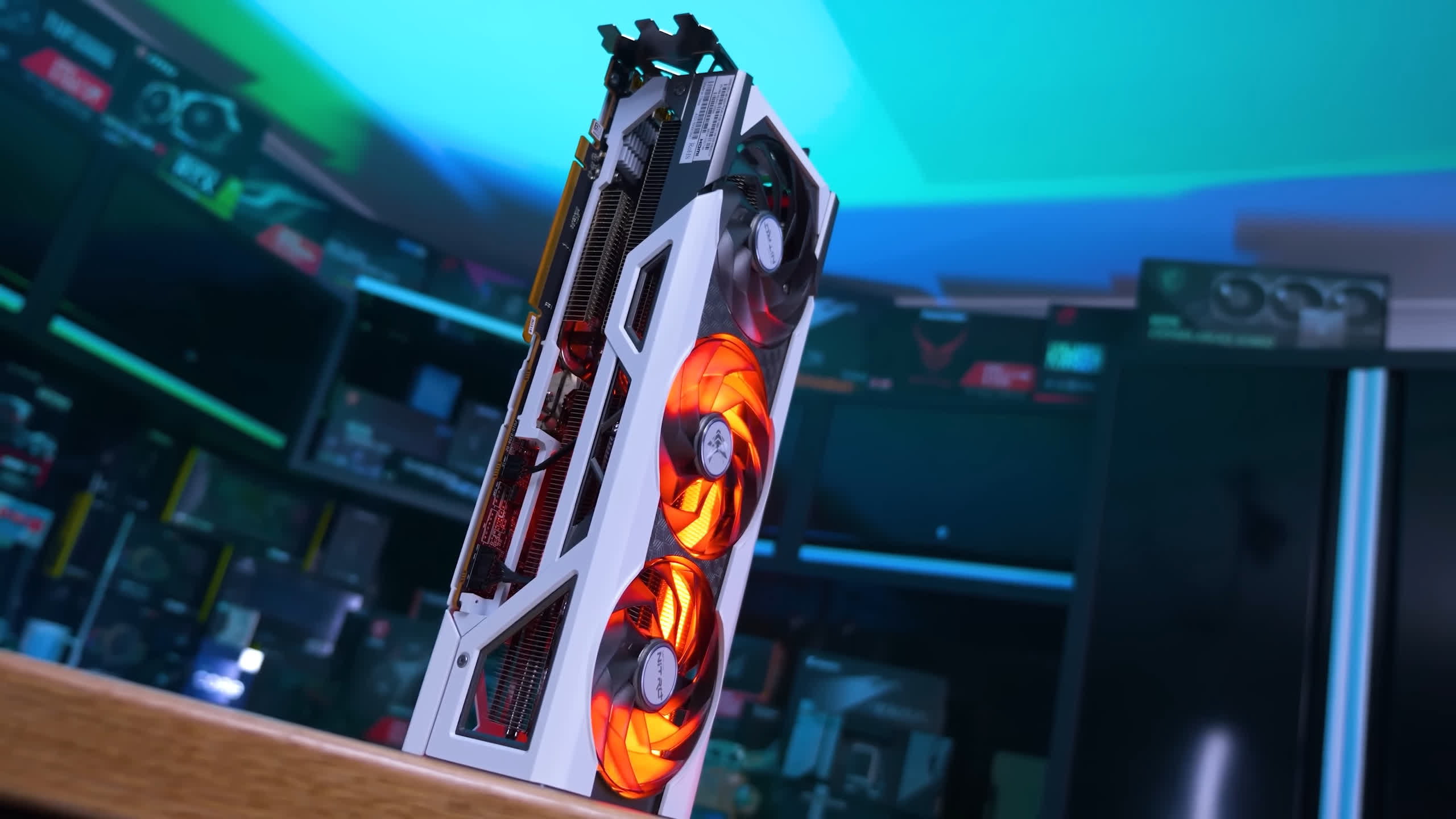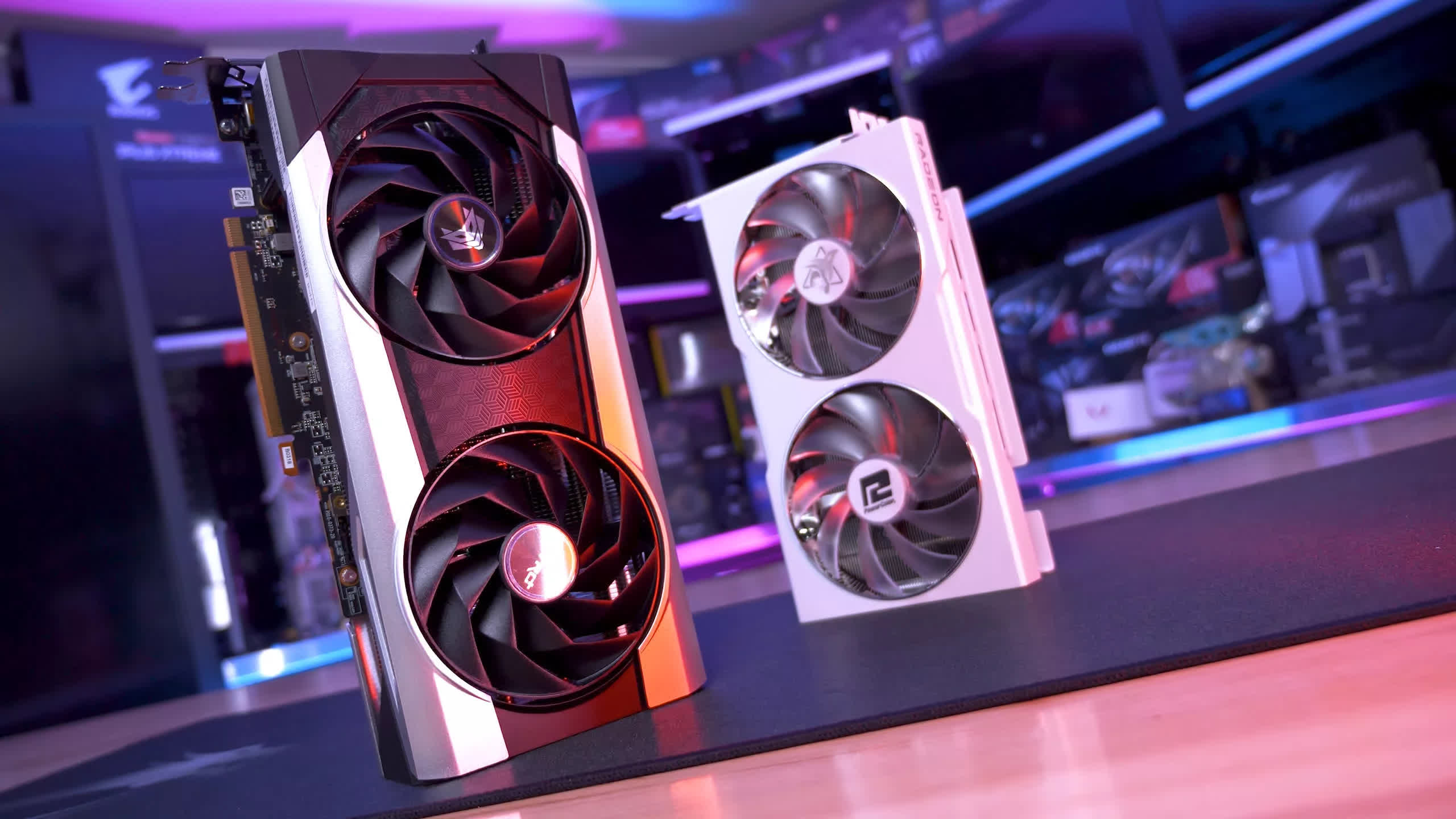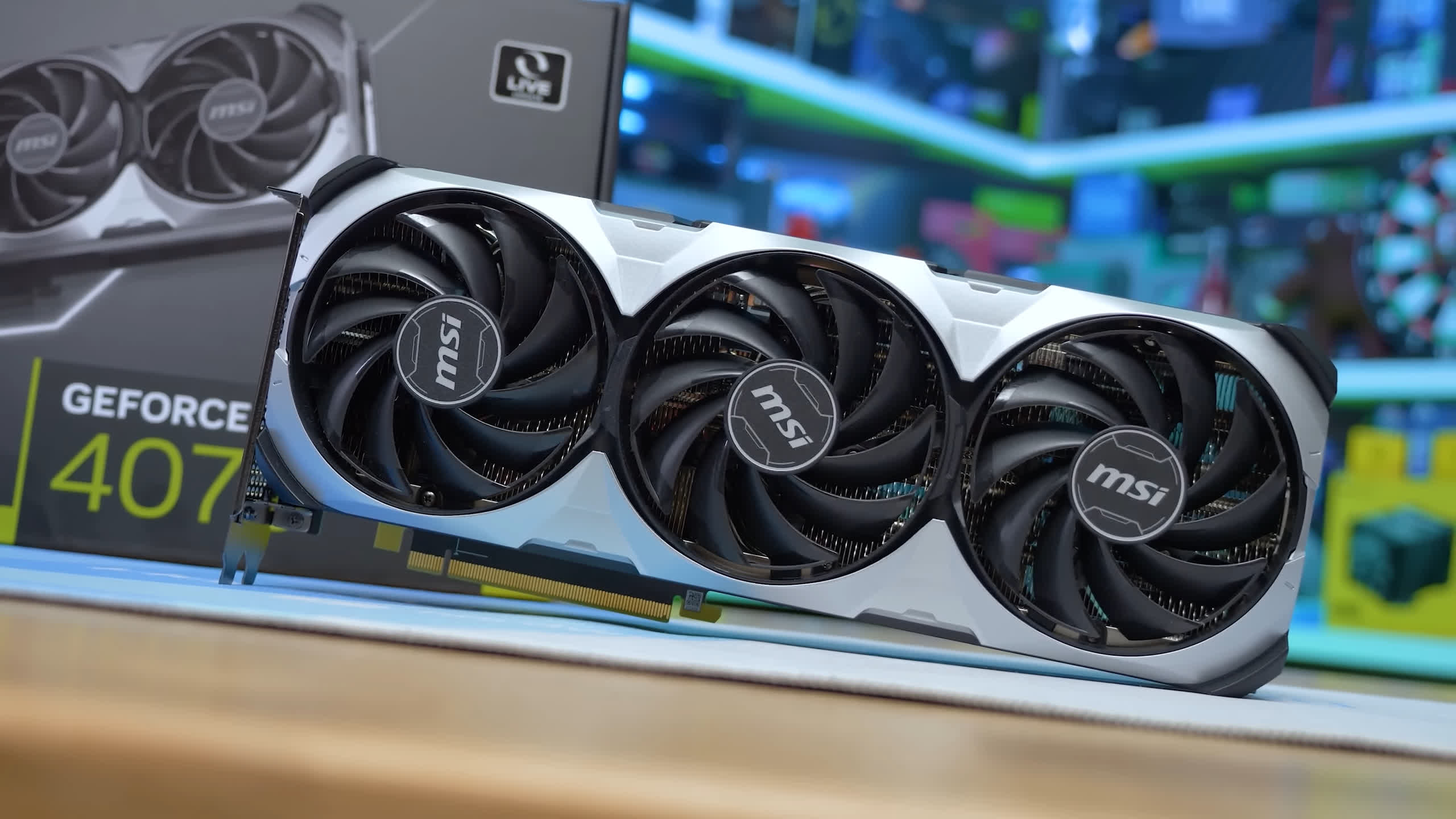For the return of our monthly GPU pricing updates, we took a break last month due to all the graphics card launches, just so we could wait and see where everything settled. This means we're in store for a bumper episode in February, we have much to discuss.
The first month of 2024 saw the release of four new graphics cards: from Nvidia, the GeForce RTX 4080 Super, RTX 4070 Ti Super, and RTX 4070 Super, along with the AMD Radeon RX 7600 XT. These products are largely mid-cycle refreshes, enhancing existing silicon and adjusting the configuration and pricing to better fit the current graphics card market.
As you will have seen from our reviews, none moved the needle significantly, with the RTX 4070 Super offering the most notable improvement in terms of performance and value. In many ways, these products represent what AMD and Nvidia should have introduced at the start of the GeForce RTX 40 and Radeon RX 7000 series.
Out of the new GPUs, the card that's come closest to selling out has been the RTX 4080 Super, though this is impacted by the low supply of this GPU relative to others. Nonetheless, buyers have generally been satisfied with the new price tag of $1,000, reflecting a $200 reduction from the RTX 4080, one of Nvidia's more excessively priced initial models.
Other GPU launches have performed decently, with the RTX 4070 Super and RTX 4070 Ti Super generating some interest, but neither selling out quickly. We're observing a moderate increase in sales metrics, a respectable uplift for a mid-generation release, but not a significant surge. The Radeon RX 7600 XT hasn't made a substantial impact, with low excitement around its launch.
It's been interesting to see the reception to these products, especially the RTX 4080 Super which is currently difficult to find at its $1000 MSRP, currently going for $1050 on Newegg. From comments on our reviews, we've noticed extensive discussion about cards being "overpriced," even for products we believe offer good cost per frame and overall value. There's a prevalent mentality affecting graphics card sales, with products offering price reductions or perceived better value selling relatively well, such as the $500 Radeon 7800 XT, heavily discounted last-generation RX 6000 GPUs, and the 4080 Super.
New Graphics Cards: RTX 4000, Radeon 7000 and Intel Arc
| MSRP | Lowest Price Dec | Lowest Price Jan | Lowest Price Feb | Current Price Inflation | Increase Jan to Feb | |
|---|---|---|---|---|---|---|
| GeForce RTX 4090 | $1,600 | $2,000 | $2,000 | $1,900 | 19% | -5% |
| GeForce RTX 4080 Super | $1,000 | $1,050 | 5% | |||
| GeForce RTX 4080 | $1,200 | $1,180 | $1,180 | $1,200 | 0% | 2% |
| GeForce RTX 4070 Ti Super | $800 | $800 | $800 | 0% | 0% | |
| GeForce RTX 4070 Ti | $800 | $780 | $750 | $700 | -13% | -7% |
| GeForce RTX 4070 | $600 | $600 | $590 | -2% | -2% | |
| GeForce RTX 4070 Super | $550 | $550 | $535 | $530 | -4% | -1% |
| GeForce RTX 4060 Ti 16GB | $500 | $450 | $440 | $430 | -14% | -2% |
| GeForce RTX 4060 Ti 8GB | $400 | $380 | $385 | $375 | -6% | -3% |
| GeForce RTX 4060 | $300 | $300 | $295 | $290 | -3% | -2% |
| Average | -2% | -2% |
The launch of these four graphics cards has impacted the pricing of surrounding models in some cases. The RTX 4070 Ti, for example, is now available at a new low of $700, a $50 reduction from last month and $100 less than its MSRP to accommodate the 4070 Ti Super. This places the 4070 Ti in a solid, though not exceptional, value position, as the Ti Super is now 14 percent more expensive while offering less than a 10 percent performance increase. The increase from 12 to 16GB of VRAM with the Super complicates the value discussion, as having more VRAM is worth a premium.
| MSRP | Lowest Price Dec | Lowest Price Jan | Lowest Price Feb | Current Price Inflation | Increase Jan to Feb | |
|---|---|---|---|---|---|---|
| Radeon RX 7900 XTX | $1,000 | $980 | $950 | $920 | -8% | -3% |
| Radeon RX 7900 XT | $900 | $780 | $740 | $700 | -22% | -5% |
| Radeon RX 7800 XT | $500 | $540 | $500 | $490 | -2% | -2% |
| Radeon RX 7700 XT | $450 | $420 | $440 | $430 | -4% | -2% |
| Radeon RX 7600 XT | $330 | $330 | $330 | 0% | 0% | |
| Radeon RX 7600 | $270 | $250 | $260 | $260 | -4% | 0% |
| Average | -7% | -2% |
Also at a new low price is the Radeon RX 7900 XT, now at $700. AMD has endeavored to maintain 7900 XT pricing at or below that of the RTX 4070 Ti. With the GeForce product's price dropping, the 7900 XT's price has also decreased. However, given the similar performance of these two GPUs and our belief that AMD GPUs should be priced lower to account for feature and ray tracing differences, merely matching the 4070 Ti's price is insufficient for our recommendation, even if it seems reasonable against the Ti Super. With the 4070 Ti still in reasonable supply, the 7900 XT needs to achieve an even lower historic price.
The RTX 4080 has seen little price movement, and in some regions like the US, virtually no discount despite the introduction of the superior 4080 Super. However, supplies for this card are low. In other regions, like Australia, the 4080 received discounts months before the 4080 Super's introduction, creating a situation where the 4080 Super launched without a perceived discount because the 4080 was already discounted below MSRP. For example, the RTX 4080 had a local MSRP of 2,220 AUD but is currently available for 1,700 AUD; while the 4080 Super is available at its 1,870 AUD MSRP. The percentage difference in Australian MSRPs for both 4080 variants matches the difference in MSRP where the 4080 Super is $200 cheaper, it's just that the 4080 has been available at a near 25% discount in Australia.
The Radeon RX 7900 XTX has found its way down to $920, now facing increased competition from the RTX 4080 Super, priced at a $1,000 MSRP, though with a bit less competition due to the 4080 Super's inflated price. Ideally, the XTX should be priced below $900, and this isn't a historic low for this model; it previously dropped to $910 last November. If you're interested in this model, we'd recommend waiting for further discounts.
We also have the GeForce RTX 4070, which continues to be priced slightly below its new official MSRP of $550, currently available for around $530, essentially unchanged from last month. The Radeon 7800 XT is available for $490, just $10 below its MSRP. This price difference can be more pronounced in other regions, making the AMD GPU a better value. It's 8% cheaper than the 4070 in the US, but at Mindfactory in Germany, it's 12% cheaper.
The RTX 4090 is starting to see a return to normal pricing, after impending export restrictions caused AIBs and distributors to rush 4090s into China, inflating the price in other regions. Now that those restrictions are in place, and Nvidia has introduced the "RTX 4090 D" for China, the price at Newegg has dropped from $2,000 to $1,900, and within a few months we're expecting that price to get much closer to its $1600 MSRP.
Not much else has been happening across Nvidia's 40 series lineup. The RTX 4060 Ti 16GB is priced at $430, with prices fluctuating between $425 and $450 over the last four months. The 8GB model is at $375, failing to reach its historic low of $330 from last year's holiday season and maintaining a similar price to previous months.
What's interesting about the GeForce RTX 4060 Ti 8GB is that we recently surveyed users about the absolute maximum price they'd pay for a graphics card with 8GB of VRAM. From about 2,000 responses, 86% of people responded with a maximum price at or below $300, with 51% of respondents indicating the maximum they'd pay was either $250 or $200. This is problematic for the 4060 Ti, which offers 8GB of VRAM well above $300, let alone $250 or $200, explaining the weak interest in this model.
The RTX 4060 also targets a limited market given its 8GB of VRAM and current price of $290, with the RTX 3060 12GB remaining a relatively popular alternative at a similar price. AMD is facing similar challenges with the RX 7600, also competing with its own RX 6650 XT. Neither the 7600 nor 4060 has seen significant price changes over the last few months, the same can be said for the RX 7700 XT, which is priced at $430, $10 above its historic low.
| MSRP | Lowest Price Dec | Lowest Price Jan | Lowest Price Feb | Current Price Inflation | Increase Jan to Feb | |
|---|---|---|---|---|---|---|
| Intel Arc A770 16GB | $350 | $270 | $300 | $290 | -17% | -3% |
| Intel Arc A770 8GB | $320 | No stock | No stock | No stock | ||
| Intel Arc A750 | $290 | $190 | $190 | $205 | -29% | 8% |
| Intel Arc A580 | $180 | $170 | $180 | $165 | -8% | -8% |
| Intel Arc A380 | $140 | $100 | $120 | $120 | -14% | 0% |
| Average | -17% | -1% |
Meanwhile, Intel's current-gen Arc products have maintained relatively stable prices compared to previous months. The A770 16GB remains the cheapest graphics card with 16GB of VRAM at just $260, and the Arc A580 has dropped to a new low of $165, though the A750 is back at $205 after being priced at $190 for a few months. If you know the games you are interested in playing run well on Intel's Arc products, these could be good options for mainstream buyers.
GeForce RTX 3000 Pricing
| MSRP | Lowest Price Aug | Lowest Price Sept | Lowest Price Oct | Current Price Inflation | Increase Sept to Oct | |
|---|---|---|---|---|---|---|
| GeForce RTX 3090 Ti | $2,000 | No stock | No stock | No stock | n/a | |
| GeForce RTX 3090 | $1,500 | No stock | No stock | No stock | n/a | |
| GeForce RTX 3080 Ti | $1,200 | No stock | No stock | No stock | n/a | |
| GeForce RTX 3080 12GB | n/a | No stock | No stock | No stock | n/a | |
| GeForce RTX 3080 10GB | $700 | No stock | No stock | No stock | n/a | |
| GeForce RTX 3070 Ti | $600 | $440 | $450 | No stock | n/a | |
| GeForce RTX 3070 | $500 | $420 | $425 | $425 | -15% | 0% |
| GeForce RTX 3060 Ti | $400 | n/a | $350 | No stock | n/a | |
| GeForce RTX 3060 | $330 | $280 | $285 | $280 | -15% | -2% |
| GeForce RTX 3050 | $250 | $320 | $320 | $320 | 28% | 0% |
| Average | -1% | -1% |
There have also been notable developments for previous-generation GPUs. GeForce 30 series stock is mostly depleting, over a year after the introduction of the 40 series. The 3070 Ti and 3060 Ti are almost unavailable now, joining the RTX 3050 8GB, which is only available at an excessively inflated price of $320. There's limited supply of the RTX 3070 left, though its price of $425 is unappealing compared to not only the 4060 Ti 16GB but also other options, while the RTX 3060 12GB appears to be in the healthiest position in terms of remaining stock.
Most of the RTX 30 series models haven't been especially competitive for a while, but ideally, Nvidia would aim to sell through the remaining 3060 stock to encourage users to transition to the RTX 4060 instead.
Radeon 6000 Series Pricing
| MSRP | Lowest Price Dec | Lowest Price Jan | Lowest Price Feb | Current Price Inflation | Price Increase Jan to Feb | |
|---|---|---|---|---|---|---|
| Radeon 6950 XT | $1,100 | $630 | No stock | No stock | n/a | |
| Radeon 6900 XT | $1,000 | No stock | No stock | No stock | n/a | |
| Radeon 6800 XT | $650 | $450 | $500 | $500 | -23% | 0% |
| Radeon 6800 | $580 | $390 | $400 | $400 | -31% | 0% |
| Radeon 6750 XT | $550 | $340 | $375 | $360 | -35% | -4% |
| Radeon 6700 XT | $480 | $300 | $330 | No stock | n/a | |
| Radeon 6650 XT | $400 | $240 | $250 | $250 | -38% | 0% |
| Radeon 6600 XT | $380 | $220 | $240 | $240 | -37% | 0% |
| Radeon 6600 | $330 | $190 | $200 | $190 | -42% | -5% |
| Radeon 6500 XT | $200 | $140 | $135 | $140 | -30% | 4% |
| Radeon 6400 | $160 | $120 | $125 | $125 | -22% | 0% |
| Average | -32% | -1% |
Supply is also drying up for some models of the RX 6000 series. The Radeon RX 6950 XT became unavailable as of January, meaning there are no last-generation models competing with newer generations at price points above $500 currently. Given the competitive nature of the RTX 40 and RX 7000 series in the $500 to $800 range at the moment, this is unlikely to significantly impact consumers.
We don't think buyers will have access to the Radeon RX 6800 XT or RX 6800 for much longer, although pricing hasn't started to rise as we often see before the end of life. There's just one 6800 available and sold by Newegg from XFX, and only a handful of 6800 XT models. Those 6800 XTs at $500 don't make much sense to purchase when the 7800 XT is slightly better at the same price, but the RX 6800 is a decent option at $400, probably why it's more scarce. It offers about the same performance as the 7700 XT and 4GB more VRAM for $30 less.
Also gone, or very hard to find right now, is the Radeon RX 6700 XT, which for graphics card shoppers looking for something around $300 has been the go-to option for several months now. The 6750 XT is still available but not as compelling at $360. We've often suggested these models around $300 due to their excellent performance and 12GB of VRAM, but once they dry up, the alternatives will be either the slower 7600 XT with 16GB of VRAM for $330, or the underwhelming 4060 Ti 8GB at $375. There's been a lot of frustration among GPU buyers that a product like the 6700 XT hasn't been adequately replaced in this latest generation, as around $300 to $400 is a very typical amount buyers are willing to spend, yet the newer options are disappointingly underwhelming.
Then we move to lower tiers, and it appears as though the RX 6600 XT and RX 6650 XT won't be around for much longer, with only one model of each available at Newegg and low stock in other parts of the world. A few months ago, these were the preferred choices instead of the RX 7600 due to their similar performance but lower price, often going for just around $220, compared to $260 for the RX 7600. Nowadays, prices have normalized to more like $250, which is less impressive compared to AMD's newer model.
The RX 6600 is still in good supply, which is good news for those after a graphics card around $200, as this represents a good deal. Pricing isn't anything special at $190, similar to what we've seen over the past year, but with good availability, there doesn't seem much risk of it suddenly disappearing and leaving the $200 market without options.
Used Graphics Cards Prices
| MSRP | eBay Used Price Dec | eBay Used Price Jan | eBay Used Price Feb | Discount Used vs New | Used Price Hike Jan to Feb | |
|---|---|---|---|---|---|---|
| GeForce RTX 3090 Ti | $2,000 | $892 | $1,040 | $935 | -53% | -10% |
| GeForce RTX 3090 | $1,500 | $737 | $807 | $787 | -48% | -2% |
| GeForce RTX 3080 Ti | $1,200 | $592 | $596 | $557 | -54% | -6% |
| GeForce RTX 3080 12GB | n/a | $447 | $464 | $426 | -8% | |
| GeForce RTX 3080 10GB | $700 | $423 | $430 | $416 | -41% | -3% |
| GeForce RTX 3070 Ti | $600 | $357 | $365 | $340 | -43% | -7% |
| GeForce RTX 3070 | $500 | $299 | $307 | $291 | -42% | -5% |
| GeForce RTX 3060 Ti | $400 | $261 | $263 | $250 | -37% | -5% |
| GeForce RTX 3060 | $330 | $227 | $238 | $235 | -29% | -1% |
| GeForce RTX 3050 | $250 | $168 | $176 | $177 | -29% | 0% |
| Average | -42% | -5% |
| MSRP | eBay Used Price Dec | eBay Used Price Jan | eBay Used Price Feb | Discount Used vs New | Used Price Hike Jan to Feb | |
|---|---|---|---|---|---|---|
| Radeon 6950 XT | $1,100 | $555 | $578 | $541 | -51% | -6% |
| Radeon 6900 XT | $1,000 | $480 | $479 | $464 | -54% | -3% |
| Radeon 6800 XT | $650 | $406 | $401 | $403 | -38% | 0% |
| Radeon 6800 | $580 | $359 | $341 | $357 | -38% | 5% |
| Radeon 6750 XT | $550 | $301 | $285 | -48% | -5% | |
| Radeon 6700 XT | $480 | $258 | $270 | $286 | -40% | 6% |
| Radeon 6650 XT | $400 | $203 | $210 | $198 | -50% | -6% |
| Radeon 6600 XT | $380 | $174 | $185 | $181 | -52% | -2% |
| Radeon 6600 | $330 | $136 | $150 | $161 | -51% | 7% |
| Radeon 6500 XT | $200 | $81 | $91 | $88 | -56% | -3% |
| Radeon 6400 | $160 | $127 | $105 | -34% | -17% | |
| Average | -47% | -2% |
The used market is pretty uneventful right now, with prices largely stagnating as the overall graphics market settles and both Nvidia and AMD have basically complete line-ups. You can find some good prices here, and it's worth exploring for those after a lower-cost GPU, but always remember to compare pricing for current generation models and match that up to what you're getting used. At times, the discount for a used graphics card is not significant; other times, you can find reasonable deals.
Wrap Up
It's been a significant first few months for the GPU market, with new launches and price movements for other graphics card models. Nothing drastic has changed; if you think GPUs are overpriced or not very exciting right now, none of this will change your mind, but at least a few small things are happening.
The introduction of Nvidia's Super series has led to some price adjustments in the upper part of the market, making it a better time to buy a high-end GPU than in previous months. The 4070 Ti and 7900 XT have seen the largest price drops, the 4070 remains below its new $550 MSRP, and even the RTX 4090 is heading back down to its MSRP. That's in addition to the value proposition of the new models, which, depending on what you're after, can be worthwhile purchases, either offering more for the same price or the same performance for less.
The mid and lower parts of the market haven't seen changes though, as far as current generation GPUs are concerned, and this is where we see the most frustration among buyers. There's just really nothing exciting or worth buying if you have around $400 to spend, and around $300, both Nvidia and AMD are struggling to compete against their own previous-gen models. At least right now, neither brand is willing to drop pricing much in this segment, and none of these cards are at historic lows. It's a dismal situation, and the best message you can send if you want things to change is to not buy a graphics card.
What will be interesting to see over the next few months is the impact of supply finally drying up for last-generation GPUs. Over the first two months of 2024, at least four older models have become unavailable, and even more are only available in limited quantities at unattractive, higher prices than before. The fact it's taken over a year since the start of the latest generation for these older models to disappear confirms the oversupply issue was very significant, not helped by generally low interest in graphics cards.
AMD and Nvidia will welcome this because it means they won't be competing with themselves as often. For example, the RX 6800 was typically a better buy than the RX 7700 XT or RTX 4060 Ti 8GB at around $400, but supply of that model is now almost exhausted. Around $320, we were recommending the RX 6700 XT instead of newer GPUs; now that card is unavailable. The only models that still appear in good supply from previous generations are the RTX 3060 12GB and RX 6600.
How this affects consumers, though, remains to be seen. It's not ideal if one good previous generation card becomes unavailable and then gets replaced with a worse current generation card. It was always going to happen at some point, but it wouldn't be as much of an issue if we actually saw a decent improvement in the mid to low-end this generation.
That's the state of the GPU market right now and something to keep an eye on in the coming months. As those older cards disappear, it'll be crucial to track whether current models are reduced to actually good historic low prices and to compare that to the pricing of discontinued models to keep companies honest about actually providing a deal.
